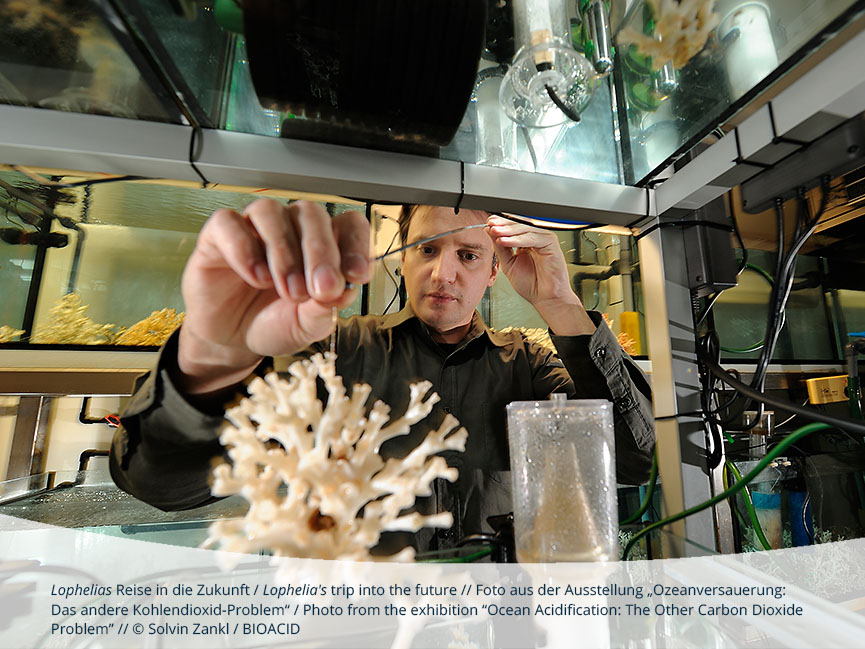Is the cold-water coral Lophelia pertusa able to cope with consequences of global climate change? In a six months long laboratory experiment conducted in the framework of the BIOACID project, the anthozoans only suffered from elevated carbon dioxide concentrations as long as the water temperature was kept at today’s level. When the researchers simulated a rise in water temperatures alone, the corals increased their growth. A combination of both factors allowed Lophelia pertusa to cope with acidified waters. Only the dead coral skeleton that forms the base of the reef starts dissolving at certain carbon dioxide concentrations.
Can these laboratory findings be extrapolated to the natural environment? In the reefs, Lophelia is integrated into a complex community that is governed by many interdependencies. In addition to rising water temperatures and ocean acidification, other stressors can come into play. For this reason, scientists try hard to take their experiments into the field and include other organisms in them.
In this video portrait, BIOACID researcher Janina Büscher tells about laboratory experiments she and her colleague Dr. Armin Form conducted with Lophelia pertusa at GEOMAR.
Photo: Solvin Zankl
